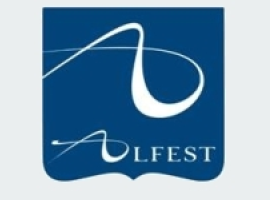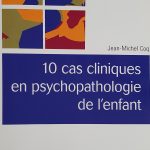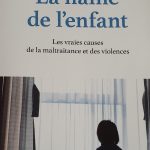Tristan Foulliaron : Psychologue-Psychanalyste – Association Quand Dire, Paris.
Article paru in Revue Francophone du Stress et du Trauma, 2010, 10(3), 135-140.
Résumé : L’association Quand Dire, fondée par des cliniciens d’orientation psychanalytique ayant une expérience clinique de l’ASE et en CMPP, se donne comme but de soutenir l’écoute des personnes aillant fait l’objet de maltraitances. Nous tentons de les faire passer du monde des sidérations et des terreurs à un roman tragique mais dicible, qui permet de passer de la survie à l’invention. Si le signalement et la reconnaissance des maltraitances sont en net progrès en France la prise en charge psychothérapique des victimes demeure souvent inadaptée. Selon nous l’abord des maltraitances suppose une écoute non pas normative mais logique: ce n’est donc pas vers un idéal de bien-traitance que nous devons nous tourner mais vers le respect des temps logiques propres à chaque sujet. Notre approche est une clinique de l’après-coup, du symptôme gelé, de l’impossible qui rend la position de neutralité problématique. Nous avons pour nous guider, les concepts lacaniens R.S.I., le concept d’ « incestuel » de Racamier, le transgénérationnel ou les questions de sexuations. Il s’agit de restaurer les constellations familiales, les espaces généalogiques en tentant d’approfondir “le roman familial”, la « lalangue » pensée par Lacan, car c’est dans cette langue que l’enfant se parle et est parlé, ce sexue et est sexué, agit et est agit, fait sens ou pas, et ce, de manière active ou passive. Seuls un ensemble de symptômes et une situation de vulnérabilité doivent nous mettre sur la piste de la maltraitance. C’est pourquoi nous préférons parler de nébuleuses symptomatiques et des nébuleuses des maltraitances.
Abstract : The abuse nebula
Quand Dire is a non profit organization, founded in Paris (France) by clinical psychologists and psychoanalysts with practical experience of working in state run child care organizations (ASE, and CMPP); its aim is to give people who have been subjected to abuse a place to talk and to be listened to. We try to help them make the transition from a world of siderations and terror to a tragic but speakable narrative, which can allow them to move from survival, to a life where invention is possible. While the identification and the acknowledgement of abuse has clearly improved, the psychotherapeutic care of the victims of abuse is often inadequate. We argue that dealing with abuse requires a logical rather than a normative approach: we should aim not for an ideal of what constitutes a good treatment, but for the respect of the logical steps specific to each subjects. Our approach is about a clinic of the “after the fact”, the frozen symptom, the impossible, which makes a neutral position problematic. As guidelines, we use the Lacanian concepts of R.S.I., the concept of “incestuel” from Racamier, the trans-generational or the questions of “sexuation”. It is about restoring the family constellations, the genealogical spaces in an attempt to attain the “family romance”, the “lalangue” elaborated by Lacan, as it is this language that a child himself uses to speak and to be spoken of, to sexuate and to be sexuated, to act and to be acted upon to makes sense or not, and that in a way that is active or passive. Only a set of symptoms and a situation of vulnerability should guide us to make the hypothesis of abuse. That’s why we prefer to talk about the symptomatic nebula and the abuse nebula.



